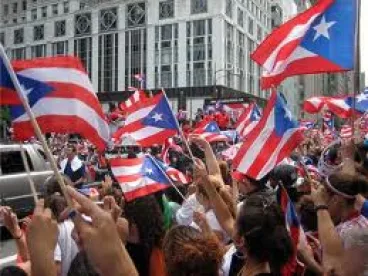A few reactions to today’s oral arguments before the U.S. Court of Appeals for the First Circuit regarding the validity of Puerto Rico’s Recovery Act:
-
On the three judge panel, Chief Judge Lynch seemed prepared to uphold the lower court decision invalidating the Recovery Act; she suggested that Congress’s amendment of the Bankruptcy Code to eliminate the Chapter 9 eligibility of Puerto Rico’s instrumentalities could be interpreted as reflecting Congressional intent that Congress, and not Puerto Rico, should determine how to deal with Puerto Rico’s municipal insolvencies. Judge Torruella seemed more sympathetic to Puerto Rico’s arguments that the statutory language does not articulate any such intent, that there is no legislative history as to the rationale for the removal of Puerto Rico from Chapter 9 eligibility, and that Congressional intent to preempt Puerto Rico’s use of its police power to enact bankruptcy legislation addressing a fiscal crisis cannot be assumed absent affirmative evidence of such intent. The third judge on the panel, Judge Howard, asked fewer questions, but asked some pointed ones relating to the potential severability of certain provisions of the Recovery Act. At the end of the arguments, Chief Judge Lynch characterized the case as an important one and pledged that the court would “work hard” on its decision.
-
On the basis of the judges’ questions, it seems more likely that the panel will uphold the lower court’s decision than that it will reverse it, although the decision may be a close one. It is possible that the court will remand the case back to the District Court with instructions to determine whether provisions of the Recovery Act that do not impact nonconsenting creditors can be salvaged by severing those that do (versus invalidating the entire Recovery Act), but it is questionable that such a statute, and such an exercise, would be of any utility.
-
Either way, there is a good chance that the First Circuit’s opinion will turn out to be a way station on a longer road, the next segment of which will be an appeal to the U.S. Supreme Court.
-
The appellants pressed their arguments that, read literally, Section 903 of the Bankruptcy Code is only applicable in situations involving a Chapter 9 debtor, which Puerto Rico instrumentalities by definition cannot be, and that the lower court therefore misconstrued Section 903 in holding its restrictions on nonfederal bankruptcy statutes applicable to Puerto Rico. The oral arguments then focused primarily on whether a literal interpretation of Section 903 as inapplicable to Puerto Rico would or would not lead to absurd results and/or results that Congress could not have intended, and on what Congressional intent can be inferred (given little, if any, applicable legislative history) from the chronology of revisions to provisions of federal bankruptcy statutes impacting the inclusion or exclusion from federal bankruptcy eligibility of the District of Columbia, Puerto Rico and other territories. Each side construed the legislative chronology as clearly supporting their clients’ views of whether Congress’s ultimate exclusion of Puerto Rico’s instrumentalities from Chapter 9 eligibility was or wasn’t intended to leave Congress with the sole power to enact any bankruptcy statute for such excluded instrumentalities. When Judge Torruella asserted that it would be highly unusual for Congress to leave Puerto Rico in a “no man’s land” with no recourse to any bankruptcy process, Chief Judge Lynch countered that perhaps Congress did not intend to leave Puerto Rico’s municipalities in limbo forever, but that it might take time for Congress to decide what approach to take.
-
Addressing arguments by the appellees that it would make no sense for Congress to eliminate Puerto Rico’s Chapter 9 eligibility while permitting Puerto Rico to “xerox Chapter 9 and make it worse” through a statute such as the Recovery Act, appellants’ counsel reminded the judges that Puerto Rico would be subject to substantial federal law constraints, such as the contracts clause, that would not be applicable in a Chapter 9 proceeding. That is accurate, and brings to the fore the question of whether, even if Puerto Rico were to persuade the First Circuit or the U.S. Supreme Court that Section 903 does not preempt the Recovery Act or invalidate its key provisions, it will have done itself any favors. Although the contracts clause is not impregnable, it sets a high bar for a public instrumentality’s restructuring of its own debts. The Section 903 litigation is only the first salvo in an armada of facial and as applied legal assaults that would face any Puerto Rico issuer attempting to break its bond contracts. Puerto Rico clearly believes that having a Recovery Act gives it more leverage in creditor negotiations than not having it, but any meaningful restructuring under the Recovery Act might well be legally ineffectual. Whatever happens to the Recovery Act, Puerto Rico needs to find other ways to address its fiscal issues.





 />i
/>i

